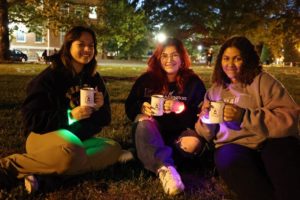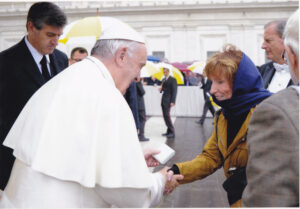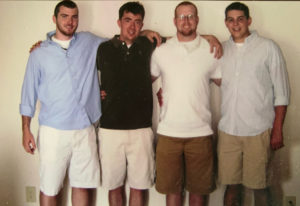Bridget Binko recalls telling her mother during high school that she wanted to pursue a career in biology.
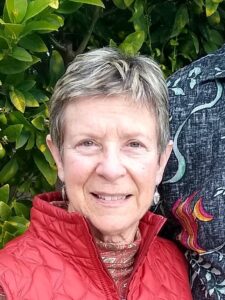
“She introduced me to a woman who ran a laboratory,” said Bridget, whose first job as a teen was washing test tubes and syringes, and later, drawing blood from patients in that lab.
When she arrived at Mary Washington, Bridget’s work experience impressed then-Biology Department Chair Rosemary Johnson so much that she hired her as a microbiology lab assistant and secured her a small scholarship. Dr. Johnson even guided her in an independent research project during her senior year, which was rare for biology majors at that time.
“She truly moved mountains for me,” Bridget said. “So, I know first-hand the value of learning experiences outside of the classroom.”
That’s why Bridget supports UMW’s Beyond the Classroom Endowment, or BTC, established during the pandemic to raise much-needed funds for student research, study abroad, internships, and other high-impact learning experiences.
“Mary Washington encourages students to think, ask questions, and follow their interests,” said Bridget, who did just that, earning a master’s in microbiology before beginning a decades-long career in biotech drug development.
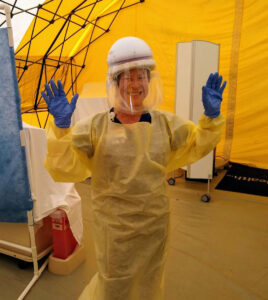
She helped bring numerous pharmaceuticals to the marketplace, including a leukemia drug her husband later took – and that she gave to patients when she switched careers in 2010 to become a registered oncology nurse. “That was such a rewarding experience,” she said.
When nursing jobs were hard to find in the aftermath of the Great Recession, Bridget spent three months on a humanitarian mission with Project Hope in the South Pacific, treating patients at pop-up clinics in remote places. She then worked in a cancer treatment center for over a decade, even pitching in to administer COVID tests before retiring earlier this year.
Bridget has always been ready to offer her help wherever it is needed, including at her alma mater, where she has made donations every year for more than four decades.
“Mary Washington gave so much to me,” she said. “You need to give back whenever you’ve been given something good.”
Q: How did you learn about the Beyond the Classroom Endowment?
A: I read a story about Cathie Woteki ’69, who was also a lab assistant. She did a big matching gift to BTC, and I thought that it sounded like just the right area to support.
Q: Why is it important for students to be able to conduct hands-on research with their professors?
A: It broadens your horizons. You learn to ask questions and find the answers yourself.
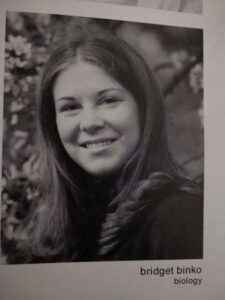
Q: What’s your favorite place on campus?
A: The Heslep Amphitheatre and Zen Garden are such lovely and peaceful places to go when you need to sort things out.
Q: What is your most meaningful Mary Washington memory?
A: I was there during the Vietnam War and the feminist movement. I actually saw Gloria Steinem speak in Fredericksburg in 1972. Several years ago, the alumni magazine ran a photo from that event, and my college roommate pointed us out. I hadn’t even noticed us!
Q: What do you do in your free time?
A: I have hundreds of orchids that are getting exceptional care now that I’m retired. I also like to sail, cook, and go foraging for wild mushrooms.
Q: What’s your motto?
A: I’ve never had one, but a nursing instructor once said, “You too, can do hard things,” and I now remind myself that whenever I’m in doubt.
Learn more about the research Mary Washington students are doing Beyond the Classroom or make your gift. For information about the BTC endowment, please contact Jeremy Vaughn in the Office of University Advancement at jvaughn@umw.edu or (540) 654-2063.
For the month of November, alums Phyllis Quinn ’77 and Beth Craig ’77 have come together to sponsor a challenge: They will make a $10,000 gift after 200 gifts are made to BTC. In addition, a Giving Tuesday challenge on November 29 will unlock another $10,000 from UMW’s College of Arts and Sciences Alumni Advisory Board.
This story originally ran in the Advancing Mary Washington newsletter and was written by Assistant Director of Advancement Communications Jill Graziano Laiacona ’04.





